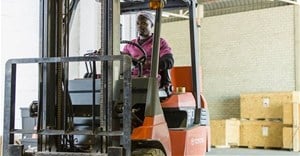
Avoid bad BEE practices

1. Don't front. This refers to any form of BEE misrepresentation in the broadest sense of the word - the Department of Trade and Industry defines fronting as "a deliberate circumvention or attempted circumvention of the B-BBEE Act and the associated Codes". Oberholzer's advice here is simple, do not try to 'buy' colour, it will backfire.
2. Don't commit fraud. Consider the recent incident where JSE-listed company Nu-World had supplied a major client a doctored BEE certificate, claiming a level six in 2012 when they had not been audited in that year. Despite Nu-World's claims of it being an honest mistake, the story was picked up in the media and has tainted the company's image.
3. Don't lie to your staff. Many companies institute an employee share scheme in order to boost their BEE credentials. However, if this is done without the true intention of actually empowering them, ie. refusal to have them access the dividends yielded by the scheme, it is the business equivalent of stealing from them. In BEE verification circles this practice is known as benefit diversion and can land a business in serious trouble.
4. Don't expect your staff to lie for you. Oberholzer feels that business ethics often do not extend to BEE. "It is astounding how many companies ask their staff to lie about the level of training received or responsibility within the business. The irony is that this same staff member will be threatened for dismissal for lying about sick leave. "
5. Don't window-dress. "What companies do not realise is that verification agencies deal with window-dressing every day. A director who is incapable of reading a business' audited financial statements is clearly incapable of understanding or executing his or her fiduciary duties," states Oberholzer.
6. Don't lie to your verification agency. Companies may get away with misrepresenting their BEE status to their verification agency - but it will backfire if a competitor blows the whistle on them. "The soon to be set-up BEE commission will be eager to demonstrate some success to cement their role as a BEE watchdog," warns Oberholzer.
7. Don't make promises you can't keep. If you cannot comply, be honest about it.
8. Don't think that transformation is a fad that will blow over. Oberholzer says that BEE is in fact becoming more entrenched with Draft BEE Codes being proposed to further regulate the implementation and enforcement of BEE in business. BEE is here to stay; use it to your advantage and do not let it sink your business.
9. Don't consider BEE as a threat and a tax to your business. Oberholzer believes that implemented correctly and matched closely to the business's strategic objectives, BEE can help grow the company and give access to a myriad of business opportunities.
10. Don't resent your client when they ask for your BEE certificate. "So you seem to understand that your clients require a good product or service at a good price. However, you are astounded when they require a BEE certificate in order to do business with you," says Oberholzer. BEE is an essential ingredient to doing, and remaining in, business in South Africa - why ignore it or resent it? Rather let it work for you.


















